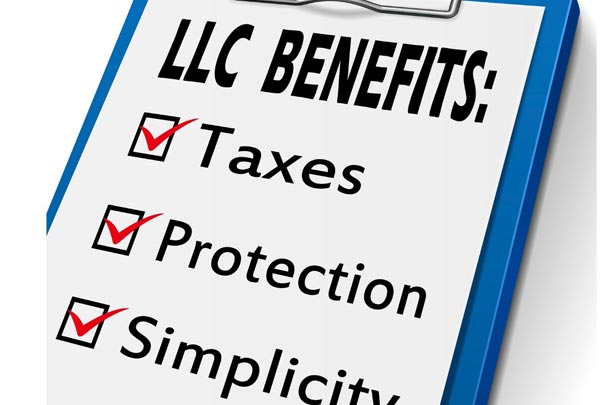The businesses that benefit from LLCs
A question arises from time to time about Limited Liability Companies (LLCs). The question is: What business benefits most from becoming an LLC?
The business activities typically benefitting from being organized as an LLC include:
Real Estate Developers – Members of this profession may contract debt (i.e., acquire loans) on behalf of the LLC. Once the property is acquired, then any income, gain, deduction, or loss may be specifically allocated among the Members. The combination of these provisions allows for the transfer of capital gains from one member to another.
Corporate Joint Venture – Instead of using wholly-owned subsidiaries to establish a general partnership joint venture, corporations may form an LLC that provides the same amount of limited liability as well as pass-through taxation.
Subsidiaries of Sub S Corporations – A sub S corporation cannot own more than 80% of an LLC subsidiary corporation; but, a sub S corporation may form a wholly-owned subsidiary LLC. Owning the subsidiary LLC allows the parent S corporation to expand its resource base.
Venture Capital Vehicle – LLC’s will allow considerable opportunities for investing company capital into income-generating ventures since the potential number of investors are unlimited. Venture profitability can be enhanced even further when members are structured as offshore corporations. This not only allows for a reduction in tax exposure but also gives a greater level of asset protection and scrutiny.
Small or Family Businesses – LLC’s are ideal for small or family-operated businesses. There is complete flexibility for structuring management and ownership, and members are able to avoid double taxation.

Limited Liability Company
-
LLC shareholder or member
-
Why do we need LLC’s?
-
The businesses that benefit from LLCs
- The basics of Limited Liability Companies (LLCs)
- Articles of Organization for Limited Liability Companies
- The advantages of Limited Liability Companies (LLCs)
- The differences between Limited Liability Companies/Limited Partnerships and Corporations
- LLC’s Part One – History
- LLC’s Part Two – Formation, Structure and Operating Agreement
- LLC’s Part Three – Membership Interests and Member Contributions
- LLC’s Part Four – Liability
- LLC’s Part Five – Records, Books and Taxation
- LLC’s Part Six – Centralized Management and Transferability of Interests
- LLC’s Part Seven – Continuity of Life, Withdrawal of Members and Dissolution
- Delaware Series Limited Liability Company
- Kentucky closes loopholes in limited liability companies
- Frequently asked questions about Limited Liability Companies (LLCs) – Part One
- Frequently asked questions about Limited Liability Companies (LLCs) – Part Two
- Frequently asked questions about Limited Liability Companies (LLCs) – Part Three
- Advantages of a Limited Liability Company
- Advantages of a Limited Liability Company (LLC) over a Limited Partnership
- Advantages of a Limited Liability Company (LLC) over an S Corporation
- Facts about Limited Liability Companies (LLCs)
- More frequently asked questions about Limited Liability Companies – Part One
- More frequently asked questions about Limited Liability Companies – Part Two
- More frequently asked questions about Limited Liability Companies – Part Three
- More frequently asked questions about Limited Liability Companies – Part Four
- More frequently asked questions about Limited Liability Companies – Part Five
newsletter signup
[forminator_form id=”1485″]

FIGHTING BACK!
